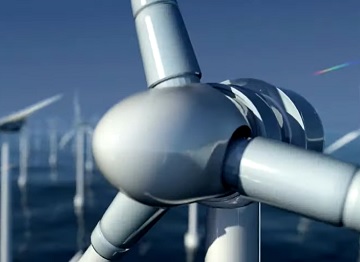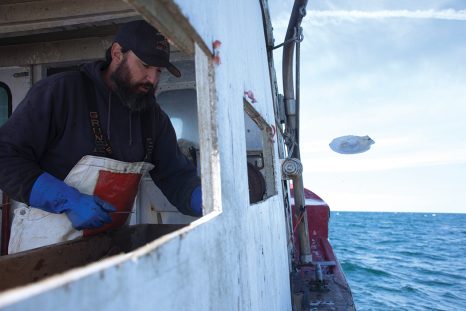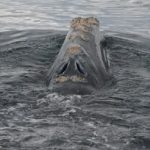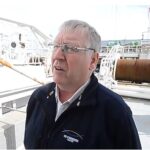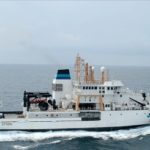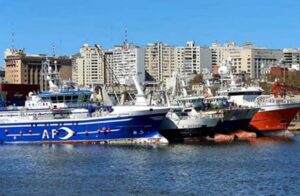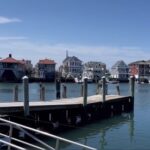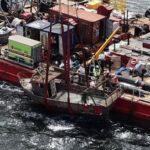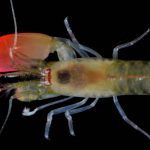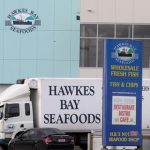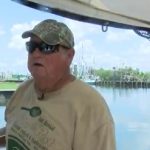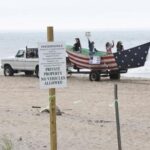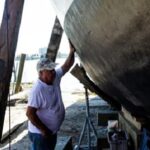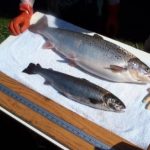Tag Archives: Offshore Wind Development
Feds & NJ Rushed Offshore Wind – Now It’s Falling Apart! Court Ruling Highlights Oversight Deficiencies!
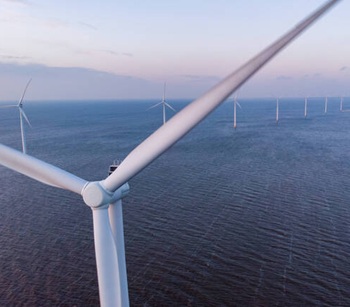 After nine months of covering offshore wind energy developments along the Jersey Coast, three glaring issues have emerged over that time—each fueling opposition to the federal and state-backed offshore wind plan: lack of due diligence, rushed approvals, and the bigger is better mentality. Governor Murphy encapsulated this ambition, declaring, “Welcome to NJ, the Nation’s Center of Offshore Wind.” But with mounting setbacks—including a recent court ruling revoking a critical permit—the cracks in this fast-tracked initiative are becoming impossible to ignore. The future of offshore wind development in New Jersey has been dealt yet another significant blow following a recent ruling from the Environmental Appeals Board. On March 14, the board decided to revoke the Clean Air Act permit for the Atlantic Shores wind turbine project, a move that U.S. Representative Chris Smith (R-NJ) described as “another nail in the coffin” for the initiative. more, >>CLICK TO READ<< 07:15
After nine months of covering offshore wind energy developments along the Jersey Coast, three glaring issues have emerged over that time—each fueling opposition to the federal and state-backed offshore wind plan: lack of due diligence, rushed approvals, and the bigger is better mentality. Governor Murphy encapsulated this ambition, declaring, “Welcome to NJ, the Nation’s Center of Offshore Wind.” But with mounting setbacks—including a recent court ruling revoking a critical permit—the cracks in this fast-tracked initiative are becoming impossible to ignore. The future of offshore wind development in New Jersey has been dealt yet another significant blow following a recent ruling from the Environmental Appeals Board. On March 14, the board decided to revoke the Clean Air Act permit for the Atlantic Shores wind turbine project, a move that U.S. Representative Chris Smith (R-NJ) described as “another nail in the coffin” for the initiative. more, >>CLICK TO READ<< 07:15
Nova Scotia taking more steps toward offshore wind development
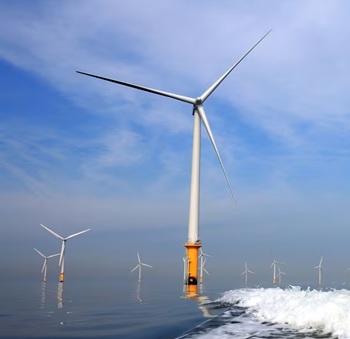 Nova Scotia is stepping closer to the development of offshore wind farms in its open waters, but the success of the province’s pursuit is far from certain. In the past two weeks, the provincial and federal governments formalized the regulatory body that will oversee offshore wind development, announced their membership in the Global Offshore Wind Alliance, and received a report that’s meant to guide their next steps. But there are obstacles to overcome. Another challenge, according to Daborn, is finding a way to support offshore wind while also protecting existing ocean industries. “We have a great deal of concern, particularly about the fisheries, and it is clear that we wouldn’t want to sacrifice the fisheries in any real way in order just to produce some electrons,” he said. Photos, more, >>CLICK TO READ<< 07:48
Nova Scotia is stepping closer to the development of offshore wind farms in its open waters, but the success of the province’s pursuit is far from certain. In the past two weeks, the provincial and federal governments formalized the regulatory body that will oversee offshore wind development, announced their membership in the Global Offshore Wind Alliance, and received a report that’s meant to guide their next steps. But there are obstacles to overcome. Another challenge, according to Daborn, is finding a way to support offshore wind while also protecting existing ocean industries. “We have a great deal of concern, particularly about the fisheries, and it is clear that we wouldn’t want to sacrifice the fisheries in any real way in order just to produce some electrons,” he said. Photos, more, >>CLICK TO READ<< 07:48
Trump executive order blocks progress for four offshore wind projects off NC coast
 One of the hundreds of executive orders signed by President Donald Trump on his first day in office leaves the future of wind energy in North Carolina and off its coast in limbo. There are four sections of the Atlantic Ocean leased for offshore wind development off the North Carolina coast, including two off of Kitty Hawk and two off of Brunswick County. With the Trump executive order, all four projects are seemingly paused, with would-be developers holding leases but unable to obtain the required permits until either the administration shifts its policy or there is a change in the White House. In a statement, Gov. Josh Stein, a Democrat, said he would continue to advocate for wind at both the state and federal level. more, >>CLICK TO READ<< 08:16
One of the hundreds of executive orders signed by President Donald Trump on his first day in office leaves the future of wind energy in North Carolina and off its coast in limbo. There are four sections of the Atlantic Ocean leased for offshore wind development off the North Carolina coast, including two off of Kitty Hawk and two off of Brunswick County. With the Trump executive order, all four projects are seemingly paused, with would-be developers holding leases but unable to obtain the required permits until either the administration shifts its policy or there is a change in the White House. In a statement, Gov. Josh Stein, a Democrat, said he would continue to advocate for wind at both the state and federal level. more, >>CLICK TO READ<< 08:16
NOAA’s “no evidence” that wind kills whales violates the Information Quality Act
 NOAA persists in claiming there is no evidence that offshore wind development is causing whale deaths. This is a false claim that is repeated endlessly in the press. There is lots of evidence some of which I have documented over the last two years. It is actually illegal for Federal agencies to make false claims like this. There is a 25-year-old law called the Information Quality Act (IQA) enforced by OMB’s Office of Information and Regulatory Affairs. IQA mandates that agencies provide accurate unbiased information. Here are the two key definitions from NOAA’s IQA guidance,,, Unfortunately, NOAA’s repeated claim that there is no evidence of wind development causing whale deaths is neither accurate nor unbiased. It is false and typical of NOAA’s actions biased in favor of development. more, >>CLICK TO READ<< 09:48
NOAA persists in claiming there is no evidence that offshore wind development is causing whale deaths. This is a false claim that is repeated endlessly in the press. There is lots of evidence some of which I have documented over the last two years. It is actually illegal for Federal agencies to make false claims like this. There is a 25-year-old law called the Information Quality Act (IQA) enforced by OMB’s Office of Information and Regulatory Affairs. IQA mandates that agencies provide accurate unbiased information. Here are the two key definitions from NOAA’s IQA guidance,,, Unfortunately, NOAA’s repeated claim that there is no evidence of wind development causing whale deaths is neither accurate nor unbiased. It is false and typical of NOAA’s actions biased in favor of development. more, >>CLICK TO READ<< 09:48
Fishing advocates alarmed at offshore wind development
 The Massachusetts Fishermen’s Partnership is urging lawmakers to reconsider the Gulf of Maine Offshore Wind Lease because of its effect on marine life, ecosystems and fishing communities. Bureau of Ocean Energy Management held a lease sale in the fall and selected nearly $22 million in winning bids from two businesses to develop wind power in four lease areas off the coast of New England. Gloucester’s Angela Sanfilippo, executive director of the Massachusetts Fishermen’s Partnership and president of the Gloucester Fishermen’s Wives Association, wants to sound the alarm not only among lawmakers but the public as well, questioning who really benefits from this move. “It is with a broken heart that I am sending this message,” she said. more, >>CLICK TO READ<< 07:49
The Massachusetts Fishermen’s Partnership is urging lawmakers to reconsider the Gulf of Maine Offshore Wind Lease because of its effect on marine life, ecosystems and fishing communities. Bureau of Ocean Energy Management held a lease sale in the fall and selected nearly $22 million in winning bids from two businesses to develop wind power in four lease areas off the coast of New England. Gloucester’s Angela Sanfilippo, executive director of the Massachusetts Fishermen’s Partnership and president of the Gloucester Fishermen’s Wives Association, wants to sound the alarm not only among lawmakers but the public as well, questioning who really benefits from this move. “It is with a broken heart that I am sending this message,” she said. more, >>CLICK TO READ<< 07:49
Bottom Trawl Survey of the Maine Research Array Wind Energy Area Postponed to Allow for Testing of Survey Method
 This notice is to inform you that the bottom trawl survey of the Maine Research Array Wind Energy (MeRA) Area previously scheduled to begin on October 15, 2024, has been postponed until a date to be determined in early 2025. DMR will use this additional time to continue to test and refine our survey methodology. Between October 15 and November 27, DMR will spend 2-5 days testing the trawl vessel’s gear configuration and performance. This will include a one-day test cruise to the MeRA area and an additional one to four days of test tows as needed to assess and optimize the survey’s gear performance. Any additional testing will occur in federal waters outside of the proposed MeRA sampling area. Links, more, >>CLICK TO READ<< 16:16
This notice is to inform you that the bottom trawl survey of the Maine Research Array Wind Energy (MeRA) Area previously scheduled to begin on October 15, 2024, has been postponed until a date to be determined in early 2025. DMR will use this additional time to continue to test and refine our survey methodology. Between October 15 and November 27, DMR will spend 2-5 days testing the trawl vessel’s gear configuration and performance. This will include a one-day test cruise to the MeRA area and an additional one to four days of test tows as needed to assess and optimize the survey’s gear performance. Any additional testing will occur in federal waters outside of the proposed MeRA sampling area. Links, more, >>CLICK TO READ<< 16:16
Updated Reports Available on Fishery and Port Impacts Associated with Offshore Wind Development Along the U.S. Atlantic Coast
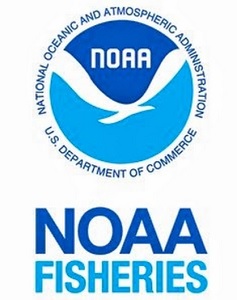 NOAA Fisheries updated and expanded existing analyses and reports to help the public better understand the impacts of offshore wind development on commercial and recreational fisheries along the U.S. Atlantic Coast. The new reports build upon the previously developed analyses, but now include updated data and additional analysis on impacts to ports and cumulative impacts from all Greater Atlantic offshore wind lease areas combined. We added 2022 fishery data to both commercial and party/charter impact summaries for each lease area and, for some approved projects, finalized export cable corridors, as reported by BOEM’s GIS website. more, >>CLICK TO READ<< 17:53
NOAA Fisheries updated and expanded existing analyses and reports to help the public better understand the impacts of offshore wind development on commercial and recreational fisheries along the U.S. Atlantic Coast. The new reports build upon the previously developed analyses, but now include updated data and additional analysis on impacts to ports and cumulative impacts from all Greater Atlantic offshore wind lease areas combined. We added 2022 fishery data to both commercial and party/charter impact summaries for each lease area and, for some approved projects, finalized export cable corridors, as reported by BOEM’s GIS website. more, >>CLICK TO READ<< 17:53
Location of Offshore Wind Zone Doesn’t ‘Pass the Pub Test’
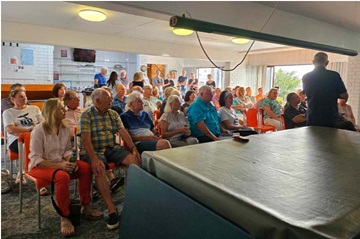 While industry is moving full steam ahead with plans for offshore wind development off Port Stephens, the local fishing community still hold grave concerns over the suitability of the location. The recent Newcastle and Port Stephens Game Fish Club (NPSGFC) Garmin Billfish Shootout, an annual fishing contest held off the coast in areas potentially impacted by future offshore wind development, brought the issue into focus once more. The Game Fish Club’s President, Troy Radford, said the location of the Hunter offshore wind zone, which starts about 20 kilometres out to sea from the Port Stephens coast, does not “pass the pub test”. “If this was going on in the Great Barrier Reef would this be going on? more, >>click to read<< 09:39
While industry is moving full steam ahead with plans for offshore wind development off Port Stephens, the local fishing community still hold grave concerns over the suitability of the location. The recent Newcastle and Port Stephens Game Fish Club (NPSGFC) Garmin Billfish Shootout, an annual fishing contest held off the coast in areas potentially impacted by future offshore wind development, brought the issue into focus once more. The Game Fish Club’s President, Troy Radford, said the location of the Hunter offshore wind zone, which starts about 20 kilometres out to sea from the Port Stephens coast, does not “pass the pub test”. “If this was going on in the Great Barrier Reef would this be going on? more, >>click to read<< 09:39
Harris: No offshore wind turbines
 Warning of dire consequences if offshore wind industrialization is allowed off Maryland’s Atlantic coast, three legislators called on experts to bolster their call to halt construction of wind turbines off the mid-Atlantic coast. Harris was joined by New Jersey Congressmen Jeff Van Drew (R) and Chris Smith (R). Six experts testified and answered questions from the legislators. whose districts “are directly impacted” by “offshore wind industrialization,” according to news releases issued by the congressmen’s offices. Harris doubted that “the average person would be willing to pay the extra taxes and extra rates in order to develop a source of energy that … is roughly four times as expensive as what your current source of energy is,” he said. “That impacts everyone whether or not you live on the Shore.” 12 photos, more, >>click to read<< 06:55
Warning of dire consequences if offshore wind industrialization is allowed off Maryland’s Atlantic coast, three legislators called on experts to bolster their call to halt construction of wind turbines off the mid-Atlantic coast. Harris was joined by New Jersey Congressmen Jeff Van Drew (R) and Chris Smith (R). Six experts testified and answered questions from the legislators. whose districts “are directly impacted” by “offshore wind industrialization,” according to news releases issued by the congressmen’s offices. Harris doubted that “the average person would be willing to pay the extra taxes and extra rates in order to develop a source of energy that … is roughly four times as expensive as what your current source of energy is,” he said. “That impacts everyone whether or not you live on the Shore.” 12 photos, more, >>click to read<< 06:55
Offshore Wind and the Stress on Commercial Fishermen
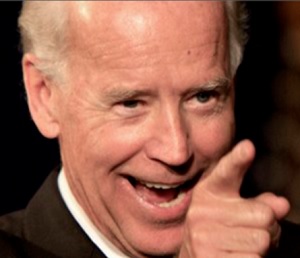 Congressional Republicans are sounding the Mayday alarm this weekend to the grave challenges commercial fishermen face resulting from the Biden administration’s offshore wind agenda. Offshore wind development is placing enormous stress on the American commercial fishing fleet, which may not survive these challenges. A trio of coastal lawmakers, Reps. Andy. Harris (R-Md.), Chris Smith (R.-N.J.), and Jeff Van Drew (R-N.J.) will explore offshore wind farm interactions at an upcoming hearing, which their colleagues and the public should heed. President Joe Biden casts himself as a friend to American workers, but his poor treatment of fishermen and their communities puts the lie to this claim. Biden’s plan to produce 30 GW of offshore wind energy by the year 2030 is based solely on political goals, not any true scientific investigation of our ocean’s offshore ecosystems. The science is unresolved. Coastal economies are forgotten. Energy and food security questions are ignored. And that’s just for starters. more, >>click to read<< 08:16
Congressional Republicans are sounding the Mayday alarm this weekend to the grave challenges commercial fishermen face resulting from the Biden administration’s offshore wind agenda. Offshore wind development is placing enormous stress on the American commercial fishing fleet, which may not survive these challenges. A trio of coastal lawmakers, Reps. Andy. Harris (R-Md.), Chris Smith (R.-N.J.), and Jeff Van Drew (R-N.J.) will explore offshore wind farm interactions at an upcoming hearing, which their colleagues and the public should heed. President Joe Biden casts himself as a friend to American workers, but his poor treatment of fishermen and their communities puts the lie to this claim. Biden’s plan to produce 30 GW of offshore wind energy by the year 2030 is based solely on political goals, not any true scientific investigation of our ocean’s offshore ecosystems. The science is unresolved. Coastal economies are forgotten. Energy and food security questions are ignored. And that’s just for starters. more, >>click to read<< 08:16
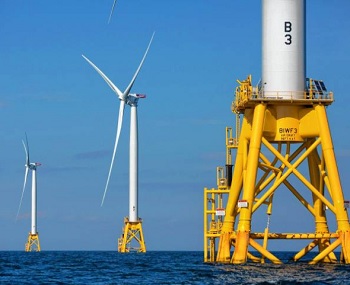
New California law aims to speed up offshore wind development
A law signed by California Governor Gavin Newsom on Saturday aims to speed up the process for new offshore wind development. The law requires California’s Coastal Commission to process consolidated permits for coastal development, which the law’s main sponsor says will streamline permitting. His district includes Mendocino, Trinity and Humboldt counties. McGuire said in a press release that this law will slash five years off the normal permitting timeline for offshore wind projects. He said it will help the state meet its goals in terms of climate change and renewable energy. >>click to read<< 09:31
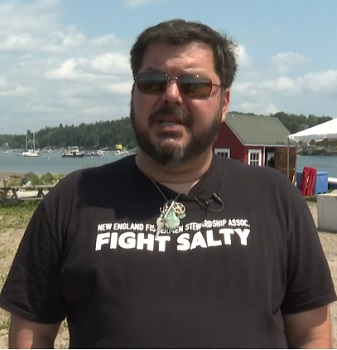
Maine fishermen gather in opposition to the push for offshore wind development
The New England Fisherman’s Stewardship Association held a ‘Save Our Fisheries’ Fundraiser to show their disapproval of the bill and project. Over fifty local businesses and stakeholders were in attendance, along with a lobster boat parade to show solidarity on the water. “There’s not a man or woman fisherman on the coast that agrees that offshore wind development is a good idea,” NEFSA Founder Jerry Leeman said. But not everyone is opposed. Backing the bill is the President of the Maine Building and Construction Trades Council, Jason Shedlock. Video, >click to read< 07:55
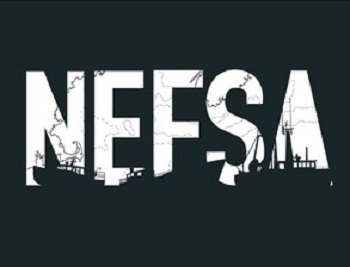
We’re Being Regulated Out of Business, New England Fishermen Say
“The New England fishermen are the most regulated fishermen in the world,” Jerry Leeman says. Leeman has been fishing in Maine his entire life. His father, grandfather, and great-grandfather were all fishermen. Federal regulations have now reduced the amount of haddock landings for commercial fishermen by more than 80%, Leeman said. The reduction in fish that fishermen are allowed to catch and “offshore wind development,” which is taking over “just under 10 million acres” of ocean, prompted Leeman, along with fisherman Dustin Delano, to create the New England Fishermen’s Stewardship Association to advocate for the region’s fishermen. Video, listen to the podcast >click to read< 07:55
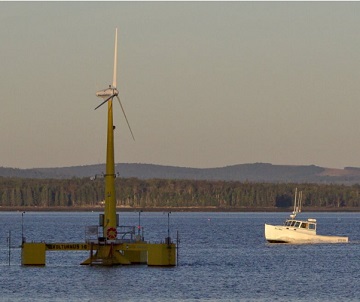
U.S. Rep. Jared Golden introduced a bill in Congress that would prevent offshore wind development in key fishing area
The bill would prevent the federal Bureau of Ocean Energy Management from potentially hurting the fishing and lobstering industries in Maine, said Golden, D-2nd District. The legislation also would launch an assessment of how federal agencies like the BOEM and the National Marine Fisheries Service study the effects of offshore wind development and engage with industry groups. Lobster Management Area 1 is the zone closest to the shores of Maine and stretches along the entire coast. That’s where Virginia Olsen, a commercial lobsterman and director of the Maine Lobstering Union, says a majority of Maine fishing and lobstering is concentrated. “I think this is the exclusion zone that the Maine Lobster Union and the area that the (Maine Lobstermen’s Association) would agree is most important economically to the fishery,” Golden said. >click to read< 19:46

Democrats’ Green Agenda Will Gut America’s Oldest Industry And Turn Coastal Towns Into The New Appalachia
Biden’s regulators are driving fishermen of all kinds off the water in droves, while offshore wind development his administration backs is threatening access to productive fishing grounds. Coastal towns keyed to commercial fishing—like Stonington, Maine or Grand Isle, Louisiana—are facing social and economic oblivion. Fishermen are not a powerful political constituency. They do not give lavishly to politicians or command a powerful lobby in Washington. Of late, fishermen in the north Atlantic formed a grassroots organization, the New England Fishermen Stewardship Association (NEFSA), to advocate for jobs, coastal communities, and sustainable management of our oceans. >click to read< 13:35

Proposed bill, Senate Bill 687, could stymy North Carolina’s offshore wind development
Offshore wind may have strong support in the White House and in the Governor’s Mansion in Raleigh, but it remains clear that support for the “green” power alternative to traditional fossil fuel power sources remains far from unanimous in North Carolina. Fishermen also have raised concerns about the wind farms placing rich fishing grounds out of bounds, and from some environmentalists worried about them negatively impacting marine life, especially the highly endangered North Atlantic right whale. Those lingering concerns have resurfaced in a proposed bill in Raleigh. Senate Bill 687, sponsored by Republican Sens. Tim Moffitt from Henderson County and Bobby Hanig from Currituck County, calls for a 10-year moratorium,,, >click to read< 09:49

U.S. identifies Gulf of Maine area for offshore wind development
President Joe Biden’s administration on Tuesday said it had finalized an area of nearly 10 million acres in the Gulf of Maine for potential offshore wind development, a major step toward expanding the industry into northern New England. The announcement was the latest milestone in the government’s plan to put wind turbines along every U.S. coastline to help displace fossil fuel for power generation and fight climate change. In a statement, the U.S. Bureau of Ocean Energy Management said it would kick off a 45-day period for public comment on the area, which sits off the coasts of Massachusetts, New Hampshire and Maine. >click to read< 08:25
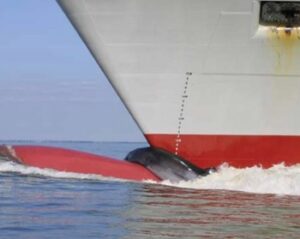
Whale death confusion abounds, and some is deliberate
Press coverage of the tragic whale deaths is a supreme study in confusion, especially the foolish attempts to somehow exonerate offshore wind development. Here are some prominent examples. The evergreen New York Times wins the race for worst coverage by claiming to explain the numerous recent whale deaths as due to online shopping. I am not making this up. Their headline promises an explanation: “Why 23 Dead Whales Have Washed Up on the East Coast Since December”. The primary reason claimed is that East Coast shipping has increased due to people buying lots of stuff post Covid, especially online, and ship strikes account for a lot of the deaths. >click to read< 13:11
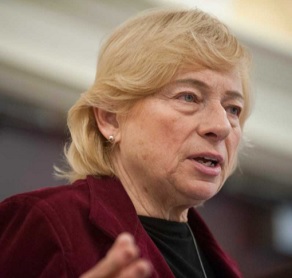
Many voices weigh in on offshore wind plan
Three days after Governor Janet Mills unveiled an offshore wind roadmap, a “comprehensive plan that offers detailed strategies” for offshore wind power in the Gulf of Maine, a handful of unconvinced citizens gathered at the Sustainable Maine Fishing Foundation Feb. 26 on Bar Harbor Road in Trenton. The idea was to inform lobstermen and interested people on offshore wind development before a Bureau of Ocean Energy Management (BOEM) presentation that opens the Fishermen’s Forum March 2 in Rockport, board member Ginny Olsen said. Energy operations consultant George Stover of Freeport, who has worked in the state’s energy industry for decades, discussed the Maine power grid and its energy sources and why, to his mind, offshore wind power is not a good fit or needed here. “If they continue down this road, it scares me,” he said. He is not alone. The idea of floating offshore wind installations in the Gulf of Maine has raised fears and concerns from environmentalists and fishermen alike. >click to read< 12:42

Feds push ignorance defense for whale killing by offshore wind development
The Bureau of Ocean Energy Management and the NOAA Fisheries agency have both put out what amount to “arguments from ignorance” claiming that offshore wind development has nothing to do with the recent whale deaths. “We know nothing about it so it must not be happening” is a ridiculous defense to the charge of offshore wind development causing the death of a lot of whales. But this is exactly what the Feds are now saying. NOAA Fisheries is a scientific agency and their version is more scientific, which is important because this is really a scientific issue. Let us look at their arguments. >click to read< 17:38
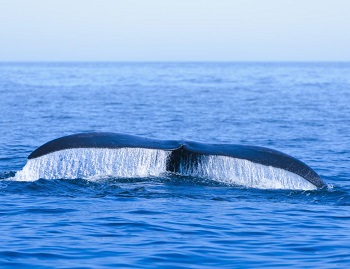
Wind Projects Off New England Put Endangered Right Whales at Risk, Warns NOAA Scientist
Planned wind projects off the New England coast threaten to harm the region’s dwindling population of endangered right whales, according to a US government marine scientist. The warning from a top National Oceanic and Atmospheric Administration official, obtained by Bloomberg under a Freedom of Information Act request, underscores the potential legal and environmental perils of offshore wind development along the coast. President Joe Biden has a goal of deploying 30 gigawatts of offshore wind within the decade. Both initial construction of wind projects and decades of expected operation threaten to imperil right whales in southern New England waters, Sean Hayes, chief of the protected species branch at NOAA’s National Northeast Fisheries Science Center, said in a May 13 letter to Interior Department officials. >click to read< 11:26

Save our way of life
In case you haven’t been paying attention, hundreds of billions of dollars are being spent at the federal and state level on offshore wind development. The Biden and Mills administration is 100% committed to reimagining our historical marine economy into a new “green” economy made up of aquaculture and offshore wind power generation. If you don’t believe me, flip through the federal Inflation Reduction Act (what an excellent oxymoron) and Biden’s 2021 Infrastructure Investment and Jobs Act. Make no mistake, eliminating the lobstering industry through the Right Whale risk reduction regulations paves the way for offshore wind development >click to read< By Patty Minerich, Boothbay Harbor 17:33

Watermen tackle offshore wind farm development concerns, company pushes (subsidized) economic benefit
“I just want to be able to go fishing.” Those were fisherman Jimmy Hahn’s words as he is one of many who are concerned about U.S. Wind offshore wind developments. Now with political leaders on their side, watermen hope to see some change moving forward. “Those guys have really stepped up to the plate. “People who buy electricity in the state are paying an extra amount in order to subsidize the windmills. That means that someone should stand up for these taxpayers. If we’re going to spend taxpayer dollars to build these windmills and subsidize them there should be proper oversight,” Representative Harris said. Another concern that came up Wednesday by waterman and Congressman Harris was the possibility of U.S. Wind not being an actual U.S. based company. >click to read< 09:03

Time to hit the brakes on offshore wind farms
2017, offshore wind generation appeared to be a dead issue in Maine. The Public Utilities Commission (PUC) had just completed an extensive study that deemed it too expensive for ratepayers. Now it is moving again at the speed of light. What I would like to know is, why haven’t we started an independent study on the environmental impacts of offshore wind development? We have been told that we need to move quickly given the Governor’s ambitious goals. I have heard this repeatedly and from many people in the Legislature, the bureaucracy, special interest groups and from high-paid lobbyists working for foreign corporations. Where did these goals come from, and why are we using these goals as a target? >click to read< 16:55
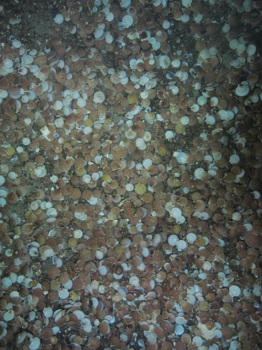
Stokesbury’s image-based, drop camera survey has been pivotal in the revival of the scallop industry
Stock assessment is one of the many key areas of research being conducted by several professors at UMass Dartmouth’s School for Marine Science & Technology (SMAST). Efforts led by Professors Steve Cadrin, Pingguo He, and Kevin Stokesbury help characterize how offshore wind development interacts with the marine environment, including important fisheries and critical habitat. Their findings are also critical in advancing offshore wind in a sustainable manner while minimizing impacts to existing marine activities and resources. >click to read< 13:34
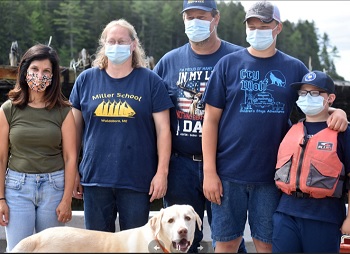
Gideon Makes Bremen Waterfront First Stop After Primary Win
Sara Gideon of Freeport is the speaker of the Maine House of Representatives. She will challenge four-term incumbent U.S. Sen. Susan Collins, a Republican, in the fall. On Wednesday, July 15, Gideon met with lobstermen at the Bremen Lobster Pound Co-Op and went out on the fishing vessel Four of a Kind with lobsterman Shannon Harvey and his family. Harvey told Gideon that restrictions on fishing gear related to right whales, as well as plans for offshore wind development, are just two of the challenges facing the Maine lobster industry. >lick to read< 17:21
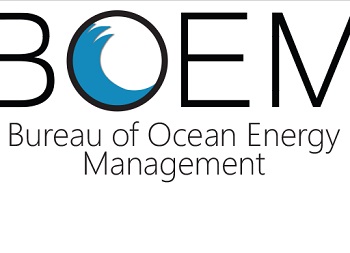
A fowl wind blows offshore
With the increased science available, showing a variety of impacts, The BOEM (Bureau Of Ocean Energy Management) Lease schedule through 2024 within the Department of Interior should be reevaluated. Since there is no official BOEM Atlantic, director, or administrator that has ever been permanently appointed, the request for a Atlantic review has not been initiated. A reliance on the bidders financial review of the lease sites is how BOEM is determining the viability for development. ( A buyer beware mentality ). This policy is a mistake and is costing the taxpayers millions. Brick Wenzel >click to read< 21:17
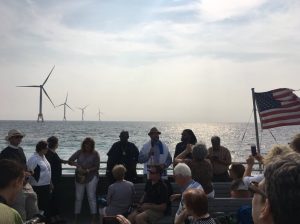
Faith Leaders Bless Block Island Wind Farm, Call For More Offshore Wind
On Monday, more than 110 people of faith from New Jersey, New York, Rhode Island, Massachusetts, Pennsylvania and Maryland stood silently as Buddhist, Jewish, Muslim, Christian and Ethical Culture Society leaders took turns offering reflections, readings from sacred writings and blessings during a ceremony at the Block Island Wind Farm. The ceremony was part of Trek to the Turbines, an educational ferry tour of the U.S.’ first offshore wind farm, located off the coast of Block Island, R.I., and developed by Deepwater Wind. The event was organized by interfaith environmental organization GreenFaith and the National Wildlife Federation (NWF), along with support from Jersey Renews. >click to read>09:15






